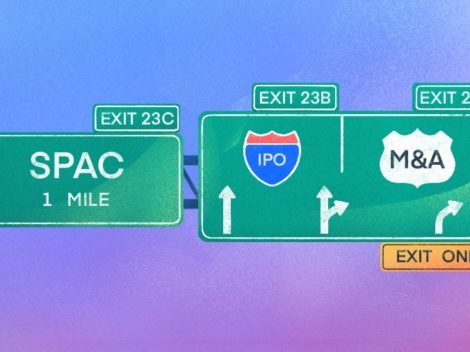The promise of quantum computing has swirled for decades. But as it gets closer to reality, more investors, the government and several industries seem to be taking note.
This month alone has provided some big news for quantum technology and computing—a level of computation much faster and at a level superior to modern computers in that, unlike classical computers, it can perform many calculations at the same time.
Last week, the White House announced several measures to support quantum technology, including signing an order that places the National Quantum Initiative Advisory Committee directly under the authority of the White House to ensure the president has the latest information on the technology.
Search less. Close more.
Grow your revenue with all-in-one prospecting solutions powered by the leader in private-company data.
Following that, this week IBM’s Chief Executive Arvind Krishna said in an interview that his company will have a more-than-4,000-qubit quantum computer ready by 2025—a significant increase from its current hardware with 127 qubits.
While the idea of quantum computing has been around since the 1980s, those in the industry and those who invest are seeing the promise inching closer to reality and the excitement—and money—building.
Big compute equals big dollars
Last year, VC-backed quantum startups saw a record of over $823 million come into the sector. That’s a greater than 70 percent increase from 2020. That’s also a significant uptick from previous years when funding struggled to hit $200 million, according to Crunchbase data.
Numbers this year are down with less than $200 million invested thus far. That does not include SandboxAQ’s funding that was reported in March. Alphabet’s 6-year-old quantum tech group, SandboxAQ was recently spun out and raised an unspecified “nine-digit” round. Those participating in the round include Breyer Capital, former Google CEO Eric Schmidt, Thomas Tull, First Light Capital Group, funds and accounts advised by T. Rowe Price Associates, Guggenheim Investments, Time Ventures, Section 32, Parkway Venture Capital and other funds and investors.
“Investor interest has definitely increased,” said Matt Kinsella, managing director at Maverick Ventures—an early investor in Colorado-based quantum technology company ColdQuanta. “Quantum will be an important part of our future.”
Last year saw monster rounds. This included Palo Alto-based PsiQuantum’s $450 million Series D in July—which gave the company a $3.1 billion valuation—and Toronto-based Xanadu, a designer of quantum silicon photonic chips, which closed a $100 million Series B last May
Aside from the undisclosed SandBoxAQ round, big rounds this year include:
- In January, Switzerland-based Terra Quantum announced a $60 million Series A and then upsized it to $75 million in March.
- In February, Israel-based Classiq—which developed a quantum algorithm platform—closed a $33 million Series B.
“Two years ago we did not go out for big money and saw investors who were enthusiastic,” said Yehuda Naveh, CTO and co-founder at Classiq. “Now, investors were much more mature and knowledgeable.”
Just as investors have matured, so has the sector. Naveh said IBM’s timeframe is a “reasonable estimate” and added quantum computing can be a game-changing technology.
“This is something that is completely different,” said Naveh, adding quantum’s ability to do chemical simulations and solve optimization problems will greatly change certain industries such as the automotive and supply chain sectors.
More uses and some problems
Kinsella also sees quantum as a “tectonic shift in our world.”
While many people focus on what quantum could mean in areas such as financial services, chemistry and life sciences, Kinsella said quantum technology as it is applied to sensing and navigation and even clocks could have significant implications.
“The U.S. (government) is very committed to quantum,” said Kinsella, pointing to President Joe Biden’s recent measures.
Quantum navigating, for instance, could be huge if the Global Positioning System goes offline, said Kinsella. Quantum may do for computing what 5G did for mobile and fiber optics did for the internet.
There also could be additional security aspects related to quantum. Part of the recent initiative coming out of the White House included a national security memorandum outlining the administration’s plan to address the security risks posed by quantum technology. Since quantum computers are expected to operate millions of times faster than today’s computers, they will also be able to break the cryptography that secures much of our technological infrastructure.
“That is likely years away, but something you have to keep an eye on,” Kinsella said. “Companies could emerge to protect against that threat.”
Illustration: Dom Guzman

Stay up to date with recent funding rounds, acquisitions, and more with the Crunchbase Daily.






![Illustration of conversation bubbles. [Dom Guzman]](https://news.crunchbase.com/wp-content/uploads/Talk-470x352.jpg)


![Illustration of pandemic pet pampering. [Dom Guzman]](https://news.crunchbase.com/wp-content/uploads/2021/03/Pets-2-300x168.jpg)


67.1K Followers